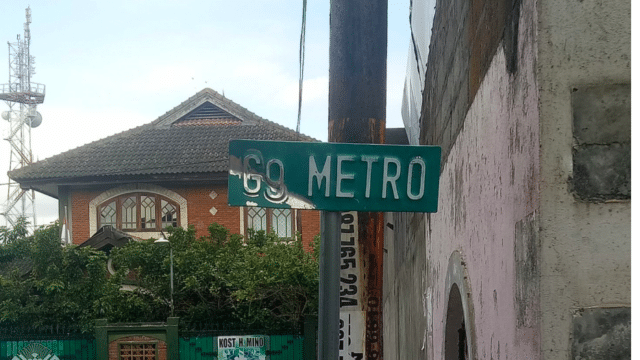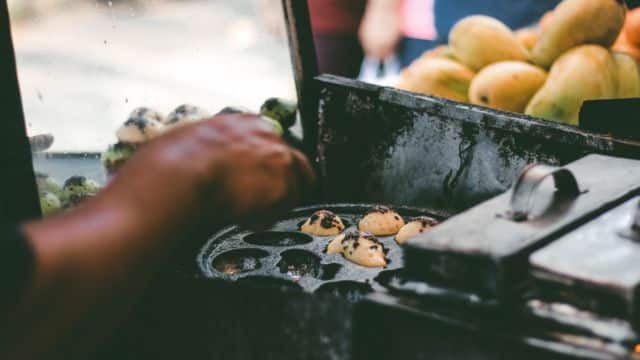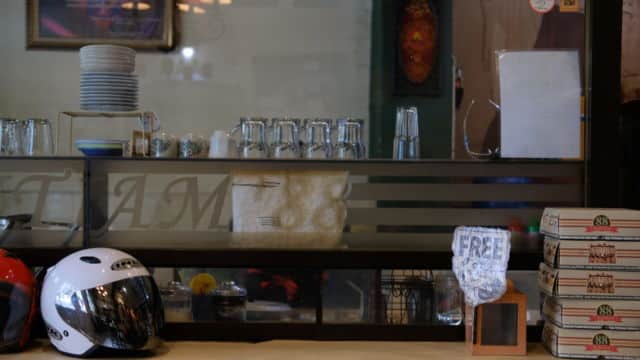The Kost of Freedom
Photo: Handy Wicaksono/Unsplash
A studio room in Surabaya | 1500 words | Translated from Bahasa Indonesia by Mikael Johani
When I took a job in the far north of Surabaya six years ago, I was faced with a 60-kilometre commute every day on my scooter. The office was a one and a half hour ride from my parents’ house on the other side of the city, so a total of three hours in miserable traffic — every day. In the end, I decided to rent a studio room, called ‘kost’ in Indonesia, closer to the office.
A kost is not quite a flat. It’s just a room with a single bed, a cupboard, and a desk and chair set. If you can afford it, you can get air conditioning, if not you’ll have to settle for a fan. There will be a shared kitchen and living room. Also depending on your budget, you’ll either get an en suite bathroom, or you’ll have to share one with the other ‘anak kost’ (literally, ‘children of the kost’). Some kost offer quite a bit of privacy for their residents, allowing you to bring friends of the opposite sex to stay the night, or even have pets. How much freedom you can enjoy likewise depends on how deep your pocket is.
When I was a university student, living in a kost was considered the ultimate freedom. You’re finally free to come and go whenever you want. You can hang out with your friends until dawn. Your boyfriends are free to visit you at any time, even late at night. You’re free to do as you like and a kost is usually designed to help you have fun. But once I was working, I had very little energy left for anything fun after hours. So I chose a place that would allow me to smoke my cigarettes in peace while spacing out staring at the ceiling, then fall asleep without anyone waking me until the next morning.
I found a girls-only kost in the city centre. I’d spent my teenage years in Sidoarjo, an industrial centre half an hour’s drive from Surabaya. I used to look on with envy at the facilities enjoyed by people in the big city. Sidoarjo, especially its western end where I lived, was untouched by proper infrastructure. There was no public park, no water fountain, or even safe roads. Living in my new kost felt like I was closer to civilization. Time to enjoy the fun and lifestyle I never experienced as a teenager.
I had chosen a girls-only kost because I’d heard that many mixed-sex kost had been raided by Satpol PP, the municipal police. I didn’t want to spend all that money and still have to look over my shoulder all the time. Also, it’s not like I wanted to see my boyfriend every day. He could sleep in his own home.
I was lucky I found a kost close to a convenience store, a market, a petrol station, and an ATM. There was also a mall within walking distance. No problem with access to facilities anymore! The kost was quite spacious. Before the pandemic, there were 20 people living here. They were nice people, too, who tended to leave you to your own business. The manager — ‘ibu kost’, literally ‘mother of the kost’ — was a pretty lady who owned three dogs, even though she was Muslim. She spent her time smoking on the verandah and playing Candy Crush on her phone until late at night. Once the pandemic began, she stopped entertaining guests and chose to socialise through singing karaoke on the Smule app. She isolated herself in one of the empty rooms, from which you could hear her dulcet tones all through the night.
I laughed quietly. A sense of relief washed over me. If the fire spread, I would run to the garage, hop on my Honda Beat Sporty scooter that I bought on a 32-month instalment plan, and ride it somewhere safe. It was the only thing of value and worth saving that I had. I didn’t need to carry my TV, DVD player, or favourite vinyl records, because I had none of those. Is this what they call a blessing in disguise? Inshallah, finally I had found the real meaning of freedom.
The ‘ibu kost’ and her family, who also lived there, hardly ever engaged me in personal conversations. Every now and then my mother would come to visit and she would have long chats with her, but I never did. As an introvert, I was happy with the situation. I rarely talked to the other residents either. I only came out of my room to cook in the kitchen, throw my rubbish out, or pick up my packages. If the neighbours were talking about me behind my back, that was none of my business. No sweat off my back.
My room was on the second floor. There was a room next to it that was kept largely empty, about two to three times the size of my own space. Two of the manager’s dogs practically lived in this room, which had an unexpected effect on me: I started having recurring nightmares in which I was a drug mule being chased by a K-9 squad.
The noise the dogs made luckily wasn’t a problem for me. I had an en suite bathroom! I was living in luxury! I remember the times when I had to share a single bathroom with my large family; no more waiting in line while desperately holding in a number two, thank God! I was even happier once I found out the kost had a spacious kitchen and a double-door fridge. And there was free drinking water, and free steamed rice in the always-on rice cooker! This is what I call freedom!
But my favourite feature of the kost, the one that made me feel most free, was the rooftop space on the third floor. Standing there and looking up, it felt like I was able to see the whole sky above me. Especially during late afternoons in the dry season. Like millions of others, I enjoyed watching Surabaya’s magnificent red sunsets, which are apparently a sure sign that the weather will be fine the following day. Whenever I felt a bit down, I would go up to the rooftop and cry by myself or contemplate my situation until I felt better. Sometimes I would stay there until dawn. The open space, the sky, and the fresh air really helped take the load off my mind. I have great memories of that rooftop.
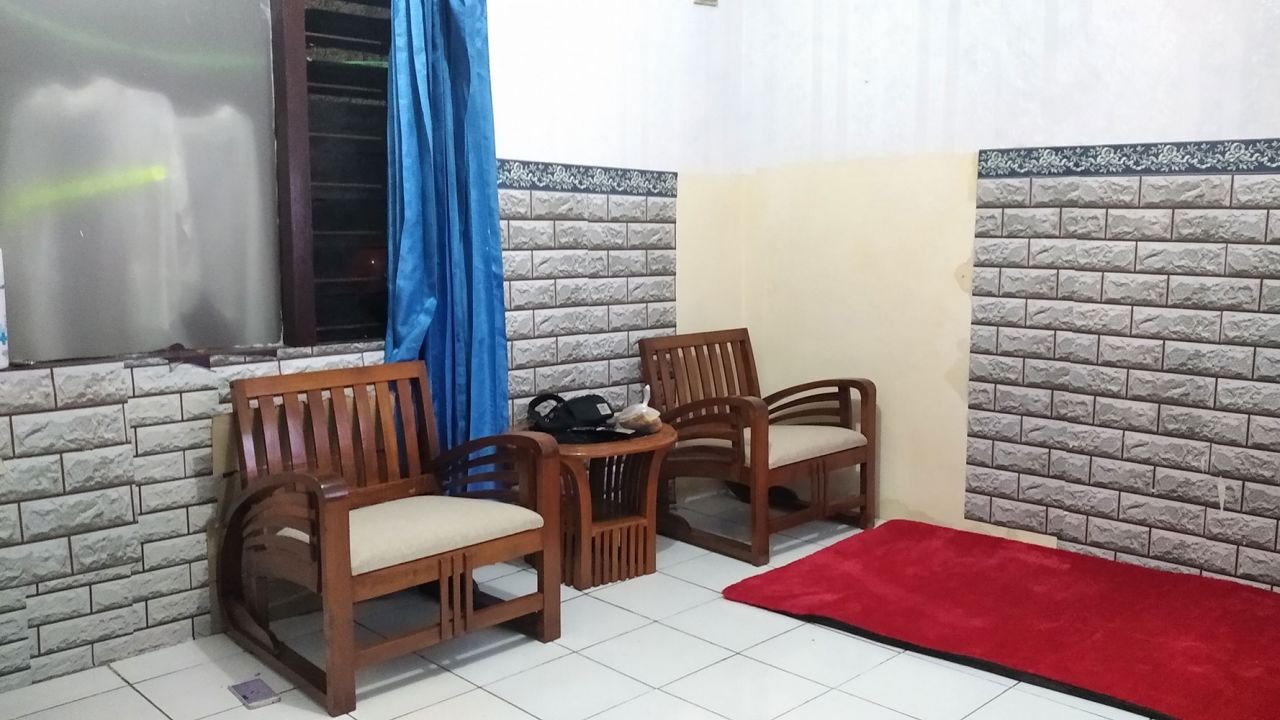
I rarely came home late from work when I was living at the kost. I would have my dinner, clean my room, take a shower, then binge on BTS videos on YouTube before I went to sleep. The manager seemed to understand that I didn’t like being disturbed. Sometimes she would check on me if she suspected a new neighbour was being a bit too chatty or nosy or was annoying me.
In the past few years I’ve come to prefer time by myself and wasn’t enthusiastic about meeting new people. That was also another reason why I didn’t want to live in a mixed-sex kost. Imagine how many times I would have to say no to friends or strangers asking me ‘Let’s go to my room’ or ‘Can I go to your room?’ I didn’t like people coming in and out of my room and judging me for my book collection or the colour of my bedsheets. Or leaving the smell of their perfume on my pillow.
Since I realised just how much I enjoyed being left on my own, I started treating my room as a fortress. The pandemic gave me even more reason to pull up the drawbridge. When the Delta variant was wreaking havoc in Indonesia, I only left my room once a week. It didn’t faze me at all. I disinfected my room every couple of days and installed an air purifier.
The room was my territory.
I started to hoard stuff in my room: bowls with duck prints, books, clothes, rolls of crochet threads. I felt rich surrounded by all these material things that didn’t actually cost much.
Until one day the electricity meter in the dog room next door suddenly burst into flames. I was woken at dawn because my electric fan had stopped working. It was hot inside the room. I heard shouts from the manager and her family: ‘Fire! Fire! We need water! Water!’ The dogs were barking incessantly in fear. I could see some of my neighbours peeking from behind their blinds, already planning their escape routes.
I sat down on my bed, a little dizzy, then got up and changed from my pyjamas. Still half-asleep, my eyes tried to focus on all the stuff that had piled up in my room. Little mountains of clothes, cheap sneakers, dozens of souvenir plates that had come free with my favourite brand of detergent. None of them was worth saving. Even in this state of semi-consciousness, I realised that I was — however much I wanted to dress it up — poor.
I laughed quietly. A sense of relief washed over me. If the fire spread, I would run to the garage, hop on my Honda Beat Sporty scooter that I bought on a 32-month instalment plan, and ride it somewhere safe. It was the only thing of value and worth saving that I had. I didn’t need to carry my TV, DVD player, or favourite vinyl records, because I had none of those. Is this what they call a blessing in disguise? Inshallah, finally I had found the real meaning of freedom.
Luckily the fire was soon put out. No need to find out if it was a blessing in disguise after all. My duck print bowls were intact, my crochet threads had not turned to ashes, and all my neighbours had gone back to bed. Life continued on its merry way.
The fire was a trigger for me to think deeply about my dire financial straits – which I had been well aware of before, but this time it was like God had finally given me a kick up the bum to do something about it.
I worked out that it costs a lot to live on your own. You need money for rent, to buy drinking water, service your scooter, replace a flat tire, pay road fines, and eat three meals a day. And above all that, you need money for laundry. After calculating, I worked out that one trip to the laundry was costing me the equivalent of two days’ worth of meals. I decided to wash my own clothes from then on, even though afterwards I always felt like I’d just completed a torturous military drill.
The longer I thought about it, the more I realised I should keep a better record of all my expenses. I tallied up the meagre totals and wrote down the date of purchase and use by date on all my skincare products. The more I knew about my expenses, the more I felt trapped by the responsibility of taking care of myself. It was not so easy.
I started to understand why many people of my age choose to stay with their parents and see nothing wrong with it. Many of my friends, a lot in their twenties, a few well into their forties, still live with their parents even after getting married and having kids. This isn’t unusual in Indonesia. You can see it as the direct consequence of rising house prices, nearly non-existent infrastructure, and inadequate public transportation for commuters. Commuting broke us, but a good kost is a luxury we can’t afford. We have to find a way to cut costs and survive. One way is to live with our parents.
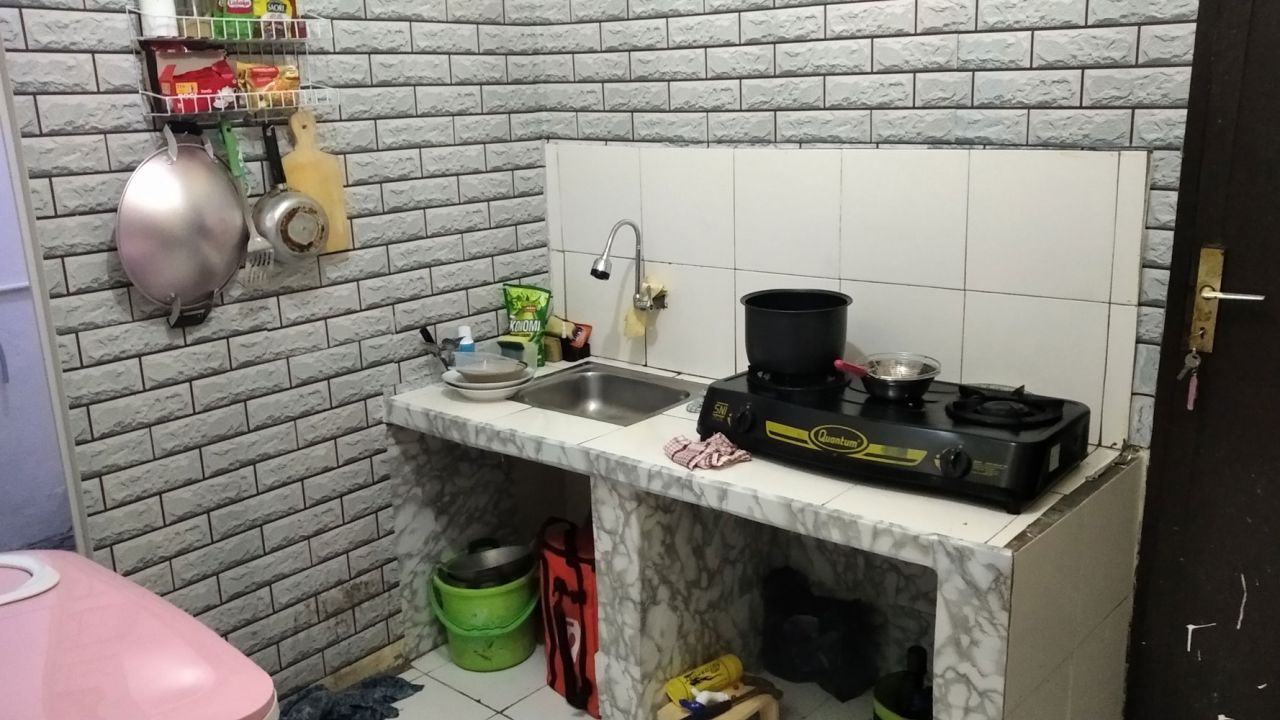
Even though my office was only a 20-minute scooter ride from my kost, when I came back from work it was impossible to immediately hit the sack. I had to wash the dishes, cook rice, throw out the rubbish, and do all the other household chores. When I wanted to order terang bulan, a kind of Indonesian pancake, I’d stress about not being able to eat it all on my own. When I was sick, I would still have to clean my room and go down to the ground floor to pick up my food orders. I hated being near people, but living on my own required so much extra effort. Living in a kost freed me from my parents’ clutch, but it also pushed me into a ravine strewn with dirty laundry.
Whenever I went up to the rooftop to contemplate my life, I often asked myself: who was the genius who promoted the idea that living in a kost was the epitome of freedom and the good life? I thought about my university friends with far deeper pockets than mine, their luxury kost (cleaning services included), and their shiny new cars. It seems they were the geniuses.
I was still prepared to admit that life in a kost has its charms, but setting you free? You’ve got to be pulling my leg.
I entered my en suite, the little symbol of luxury I was so proud of, took a look around, and picked up the plastic brush next to the toilet. It was time again to scrub the floor.
© Vema Novitasari
English translation © Mikael Johani




